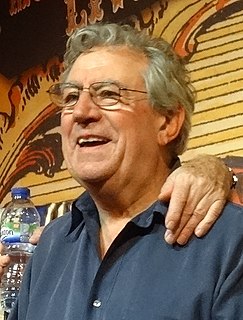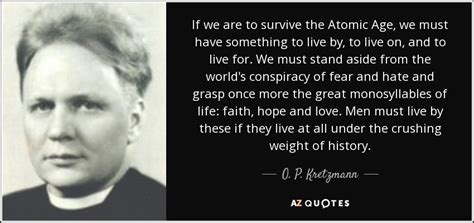A Quote by Madeleine Albright
We must be authors of the history of our age.
Related Quotes
When whistleblowers come forward, we need to fight for them, so others will be encouraged. When they are gagged, we must be their voice. When they are hunted, we must be their shield. When they are locked away, we must free them. Giving us the truth is not a crime. This is our data, our information, our history. We must fight to own it.
We must not confuse dissent with disloyalty. We must remember always that accusation is not proof and that conviction depends upon evidence and due process of law. We will not walk in fear, one of another. We will not be driven by fear into an age of unreason, if we dig deep in our history and our doctrine, and remember that we are not descended from fearful men – not from men who feared to write, to speak, to associate, and to defend causes that were, for the moment, unpopular.
If we are to survive the Atomic Age, we must have something to live by, to live on, and to live for. We must stand aside from the world's conspiracy of fear and hate and grasp once more the great monosyllables of life: faith, hope and love. Men must live by these if they live at all under the crushing weight of history.
We must teach our people the greatness of China's historical culture. In our educational program we must stress Chinese history and geography so that all may know and appreciate China's civilization of five thousand years and the far-flung boundaries of our ancient race. This will engender a greater faith in our own future.
Music expresses feeling, that is to say, gives shape and habitation to feeling, not in space but in time. To the extent that music has a history that is more than a history of its formal evolution, our feelings must have a history too. Perhaps certain qualities of feeling that found expression in music can be recorded by being notated on paper, have become so remote that we can no longer inhabit them as feelings, can get a grasp of them only after long training in the history and philosophy of music, the philosophical history of music, the history of music as a history of the feeling soul.












































